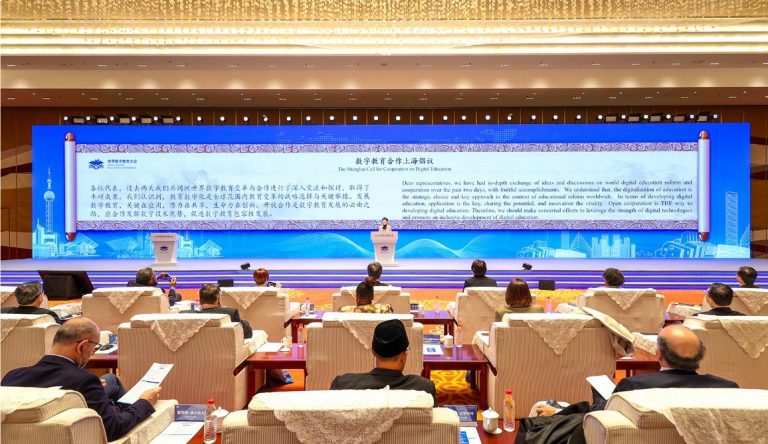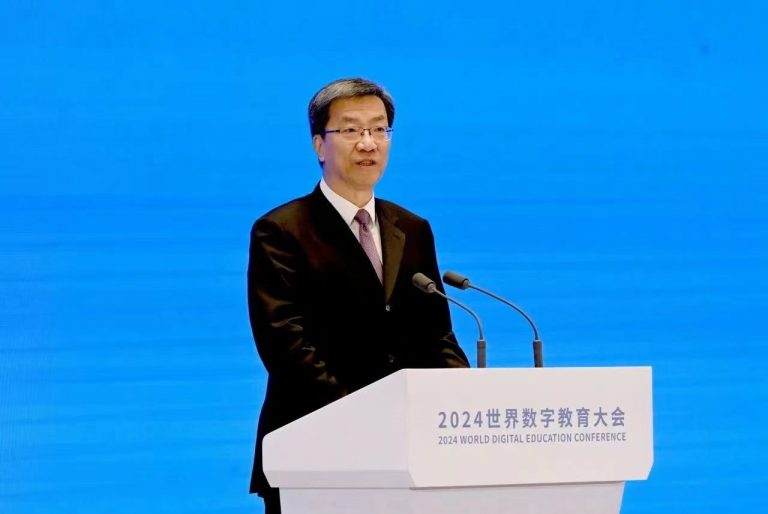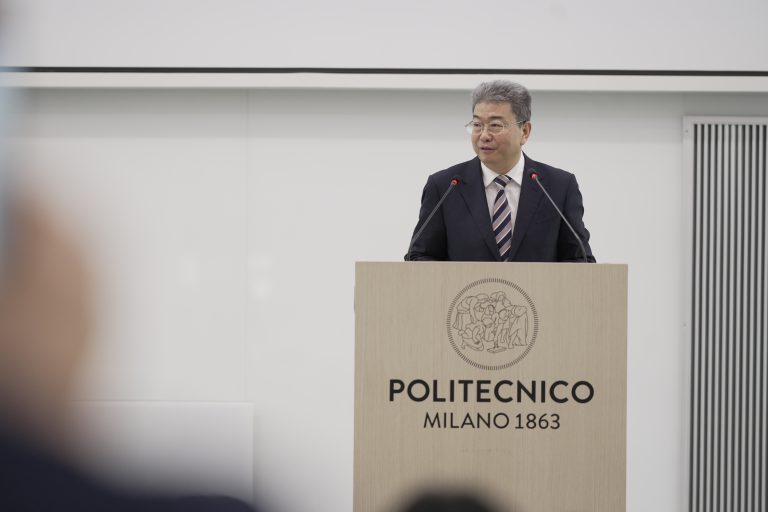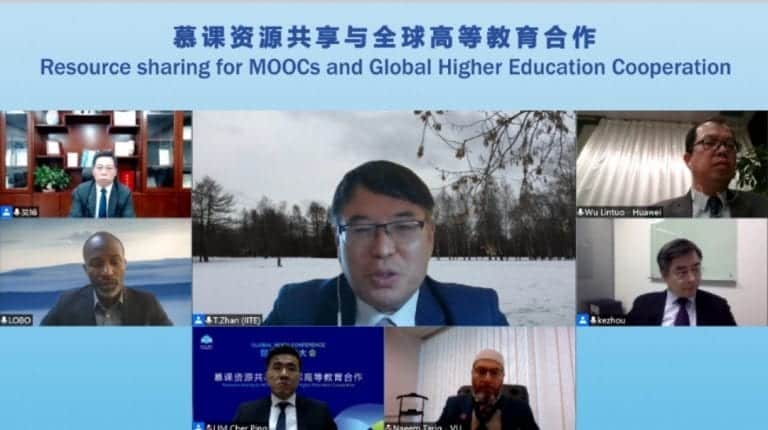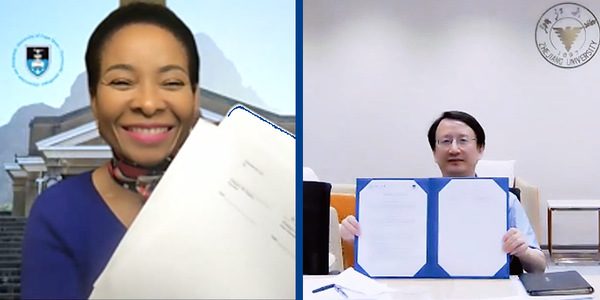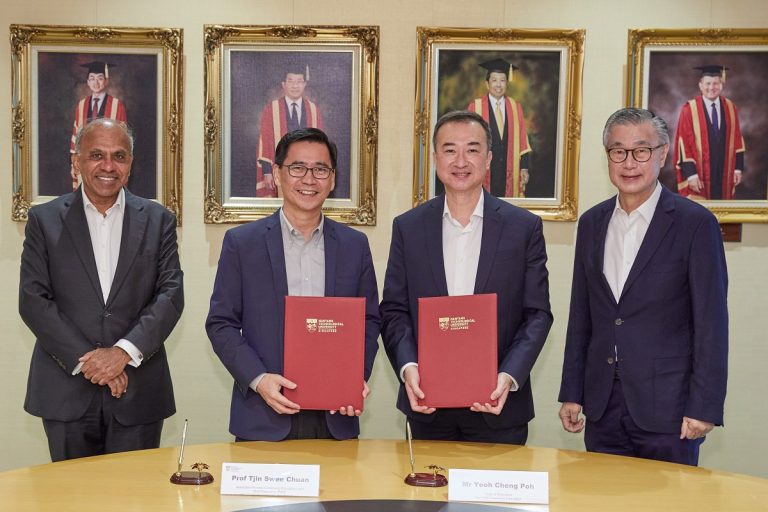The Sub-forum Two of the 2023 Global MOOC and Online Education Conference, themed “Advancing Educational Equity: Promoting Inclusive Lifelong Education”, was successfully held at the China-Italy Design Innovation Hub in Milan on December 15, 2023. This forum aimed to promote the development of innovative pedagogies, enhance the quality of higher education, promote artificial intelligence integration into higher education, and increase access to high-quality educational resources for all learners, thereby improving educational equity. A key goal of the forum was to advance the fostering of a global learning community, as well as the expansion of global educational cooperation.
During the keynote speech session, Sky Zheng, Vice President of International Development at the FutureLearn platform in the UK, shared his insights into educational equity and lifelong learning. He mentioned that promoting inclusive and equitable education and fostering the development of lifelong learning are key drivers of technological advancement. To achieve this goal, he listed a number of prerequisites such as openness, inclusiveness, and high quality. Sky Zheng provided a detailed analysis of ten subtopics in lifelong education, including the certification of learning outcomes, credit transfer, and course updates. He stated that despite significant progress in online education in recent years, it is still a long journey for lifelong education to reach its mature stage. To narrow this gap, he called on educational institutions and policymakers to consider the role of course design in enhancing productivity. By optimizing course design, it is possible to better serve the lifelong employability and willingness to participate and thus achieve sustainable development in education. This not only contributes to improving the quality of education but also provides more employment opportunities for learners, promoting social equity and inclusiveness.
Jintavee Khlaisang, who is the deputy director of the Thailand Cyber University project (TCU) of the Ministry of Higher Education, Science, Research and Innovation in Thailand, introduced the exploration and practice of Thai MOOC. In recent years, with the flourishing development of online education, the number of users joining the Thai MOOC learning platform has been steadily increasing. However, language barriers pose challenges to international cooperation on educational platforms. Hence exploring the use of Artificial Intelligence for Thai transcription has become one of the highest priorities of the center. Through this project, she hopes to provide a more convenient and efficient learning experience for global learners, promoting educational equity and international development.
Rahayu Dwi Riyanti, Interim Director of the Indonesia Cyber Education Institute (ICE-I), shared Indonesia’s lifelong learning policies. The regulations collectively reflect the national commitment to ensuring education remains relevant and accessible throughout individuals’ lives by implementing and promoting lifelong learning. The implementation of educational models and the continuous innovation of skills and knowledge are promoted by a variety of institutions. Among them, Universitas Terbuka serves as one cornerstone of the Indonesian education system. It provides inclusive and flexible learning opportunities that contribute significantly to lifelong learning principles. The ICE-I actively collaborates with top higher education institutions in Indonesia as well as some international institutions to issue unbundled courses and develop blockchain-based learning credentials for individuals to gain job competencies.
Liwen Li, Director of the Academic Affairs Office at Beijing Foreign Studies University, shared the example in MOOC cooperation by drawing on practical experiences of the China MOOCs for Foreign Studies (CMFS) project. Through taking a lead in the establishment and development of the CMFS, the university has effectively integrated national foreign language education resources, providing a high-quality learning platform for students nationwide and promoting innovation and development in foreign language education.
Guadalupe Vadillo, Director of Online High School & MOOCs at Universidad Nacional Autónoma de México (UNAM), presented the study on UNAM’s MOOC learner behavior on Coursera. Using data analysis models, factors explaining the most variance in MOOCs studied were identified. The results of the study lead to the improvement of courses, improving their quality, and enhancing the way in which assessment methods are adjusted in order to provide better student and teacher outcomes.
In case presentations and panel discussions following the keynote speech session, representatives from six institutions shared their experiences in online education and teaching practices. János Setényi, Director of the Learning Institute of Mathias Corvinus Collegium Foundation in Hungary, Quxin, Director of the Academic Affairs Office at Beijing International Studies University, Jenny Brandt, Professor at the Department of Radiation Oncology and Radiotherapy at the University Hospital Basel, Yan Jihong, Associate Dean of School of Mechatronics Engineering at Harbin Institute of Technology, Qiu Hanqin, Dean of International School of Cultural Tourism at Hangzhou City University, and Zhao Junhao, Deputy Director of the Academic Affairs Office at Dalian Maritime University, discussed the driving role of artificial intelligence in online education and the advantages of blended learning. There was consensus among all panelists that digital technology can enhance educational efficiency and effectiveness, promoting educational equity.

